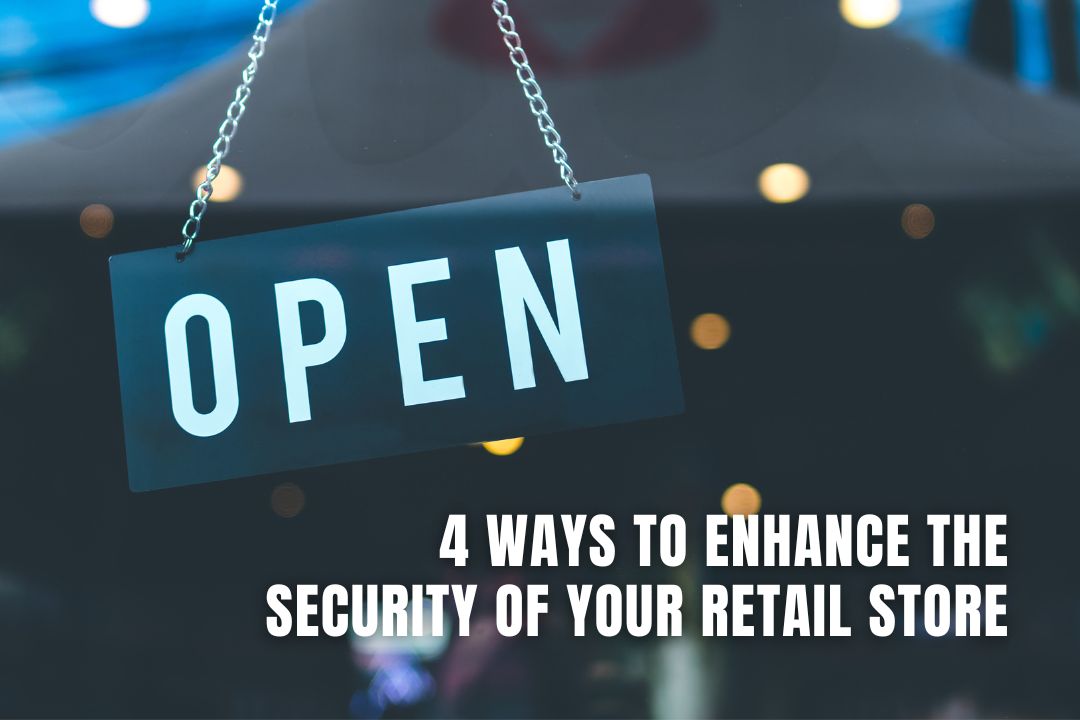
Starting a retail business is easy enough. You need to secure a storefront, pay utilities, stock inventory, and hire employees, depending on the size of your store. Retail store owners go to great lengths to deliver exceptional customer service. But one aspect where they often fail is to make their retail stores safe and secure.
Security threats abound in today’s landscape. Retail thefts and “smash and grab” robberies have become regular headlines nationwide. Some blame the increase in crime on the post-pandemic economy, whereas others attribute it to the moral deterioration of society.
Fortifying your store’s security is important for every retail business owner. In this article, we’ll discuss numerous strategies you can implement to enhance the security of your retail establishment.
Retail theft rates are alarmingly high in the U.S. About 17% of small business owners with one to twenty employees are likely to experience retail theft on a daily basis.
You can deter theft by installing surveillance systems throughout your store. Surveillance cameras also record videos 24/7. In case an unfortunate incident takes place, you can use the captured footage to identify perpetrators and understand the sequence of events.
Make sure you choose high-resolution cameras with wide-angle lenses for your establishment. Install them strategically at entry and exit points, blind spots, and cash registers. Having cameras at these sites in your retail store will serve as a deterrent to potential wrongdoers. You will also be able to monitor activities in your store in real-time.
For enhanced security, opt for cameras with night vision capabilities. These cameras record high-quality videos even in low-light conditions.
The tide of crime continues to increase for retail workers. About 77.6% of respondents in a survey reported incidents of guest-on-associate violence. In the same study, 52.6% reported that gun violence has also risen in recent years.
Active shooters, thieves, and abusive customers can make your workplace staff feel uncomfortable and on the edge. Not surprisingly, a large number of retail workers are quitting their jobs. You wouldn’t want your employees to be among them—would you?
To reduce employee turnover, having a plan in place for dealing with workplace violence is important.
Before you devise a plan, identify potential sources of violence, such as disgruntled customers or thieves in your workplace. Establish explicit protocols outlining how employees should respond to certain events, including processes for getting help.
Train your staff on recognising early workplace violence warning signs. Angry yelling, foul language, crying, finger-pointing, sulking, and temper tantrums are early signs of violence in workplaces. You must also teach them de-escalation techniques to diffuse tense situations.
Associate-on-associate or worker-on-worker violence is also common in the U.S. About 48.3% of retail workers are concerned with associate-on-associate violence.
Warning signs of worker-on-worker violence include noticeable changes in employees’ behaviour, comments about harming themselves or others, engaging in intimidating language, and persistent grievances against the company.
In this regard, Conn Maciel Carey LLP advises businesses to create streamlined processes for reporting incidents or concerns related to such violence. Also, make sure you designate a safe space where employees can seek refuge if confronted with violence.
Thefts, assaults, and vandalism are less likely to occur if your retail store has security guards posted outside. That is why you must hire them.
These trained professionals can identify suspicious behaviours as well as people, preventing threats from escalating into crimes. In case an emergency occurs, these professionals act as first responders. Besides, security guards can perform tasks such as monitoring surveillance cameras, conducting security patrols, and enforcing store policies.
When you hire security guards for your retail store, don’t just employ any individual. Look for individuals with relevant experience and certifications in security and law enforcement. Conduct a background check, too, to be on the safe side.
You can deter the risk of theft and keep cash safe in your retail store by implementing robust cash handling procedures.
Lay down clear guidelines for handling cash transactions, including procedures for opening and closing cash registers and conducting cash counts. Encourage your employees to use secure cash management tools, such as cash drawers with built-in locks, drop safes, and tamper-evident deposit bags to safeguard cash deposits.
You must also audit cash registers regularly. This will help you promptly identify any discrepancies or irregularities.
To sum things up, retail stores aren’t immune to business-related crimes. As a retail store owner, it’s your duty to create a safe and secure working environment for your employees.
These strategies will help you strengthen the security of your store, so consider adopting them. However, evaluate and adjust your plan every now and then to ensure your most valuable assets—your inventory and staff—are protected adequately.